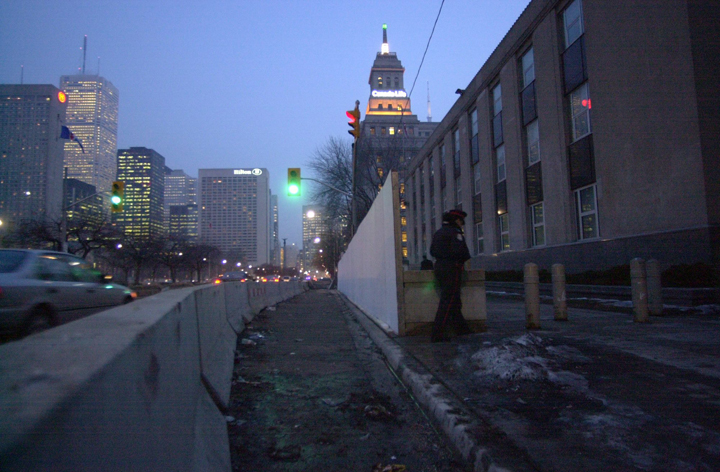TORONTO – The public should be outraged that Canada is planning to deport a Pakistani man accused of plotting terrorist mayhem in the heart of Toronto rather than prosecute him, his lawyer said Thursday.

Sending Jahanzeb Malik back to Pakistan is illogical and counterproductive given the accusation that he is an Islamic State sympathizer who aimed to bomb the financial district and U.S. consulate, lawyer Anser Farooq said.
“This is a phenomenally serious allegation and you’re just going to send this guy away?” Farooq told The Canadian Press. “Isn’t that more dangerous? It’s absurd.”
Canada Border Services Agency arrested Malik, 33, in Toronto on Monday. The permanent resident, who came to Canada as a student in 2004 and became a permanent resident in 2009, remains in detention pending a hearing on whether he has become inadmissible to Canada and should be removed.
READ MORE: Man accused of planning to attack U.S. consulate in Toronto
Farooq said he had no doubt of the outcome.
“The way the system is structured, he’s getting a one-way ticket out of Canada. That’s what’s going to happen. The end result is guaranteed,” Farooq said.
“We’ll never know whether the case would have been made out against him in a criminal court.”
In fact, Farooq said, the government is sending a message to those who might want to commit terrorist acts in Canada that all they need to do is ensure they aren’t citizens.
So far, Canadian authorities have refused to discuss the decision to go the immigration route. However, they have not been shy about branding Malik as a terrorist who planned to build remote-controlled bombs to attack his targets.
Public Safety Minister Steven Blaney said Malik was “willing to commit a terrorist attack on Canadian soil.”
Justice Minister Peter MacKay refused to weigh in on Thursday, saying he didn’t want to compromise proceedings. He did say “there’s still discussions happening” when asked if a decision to deport Malik had already been made.
Lorne Waldman, a defence lawyer who has handled national security cases, said the standard of proof and rules of evidence in immigration proceedings are much lower than in criminal court.
“It’s safe to say that if they had enough evidence to charge, they would do so,” Waldman said.
“The only reasonable conclusion to draw is that the evidence is not evidence that could be admitted in a criminal trial, and it is not strong enough to meet the higher burden of proof.”
Farooq said he had few details about Malik, a married flooring contractor, but said his client approached him for advice about two years ago because agents from the Canadian Security Intelligence Service had been “bothering” him. Those contacts ended, so he “seemed to be OK,” the lawyer said.
Malik, who is detained the jail in Lindsay, Ont., is to appear for another detention hearing on Monday. Farooq said there’s little doubt the detention will continue.
“He has no support structure, so it’s going to be impossible to get him bail,” the lawyer said.
While Canadian authorities have gone the immigration route in other suspected terrorism cases, they have not been shy about prosecuting non-citizens or permanent residents for such offences. One example is the current Via Rail case in which a Tunisian student living in Montreal and a permanent resident of Palestinian descent were accused of plotting to blow up a passenger train.
In other cases, they have used a national security certificate to introduce secret evidence as a way to detain or limit the freedom of suspect foreigners.



Comments